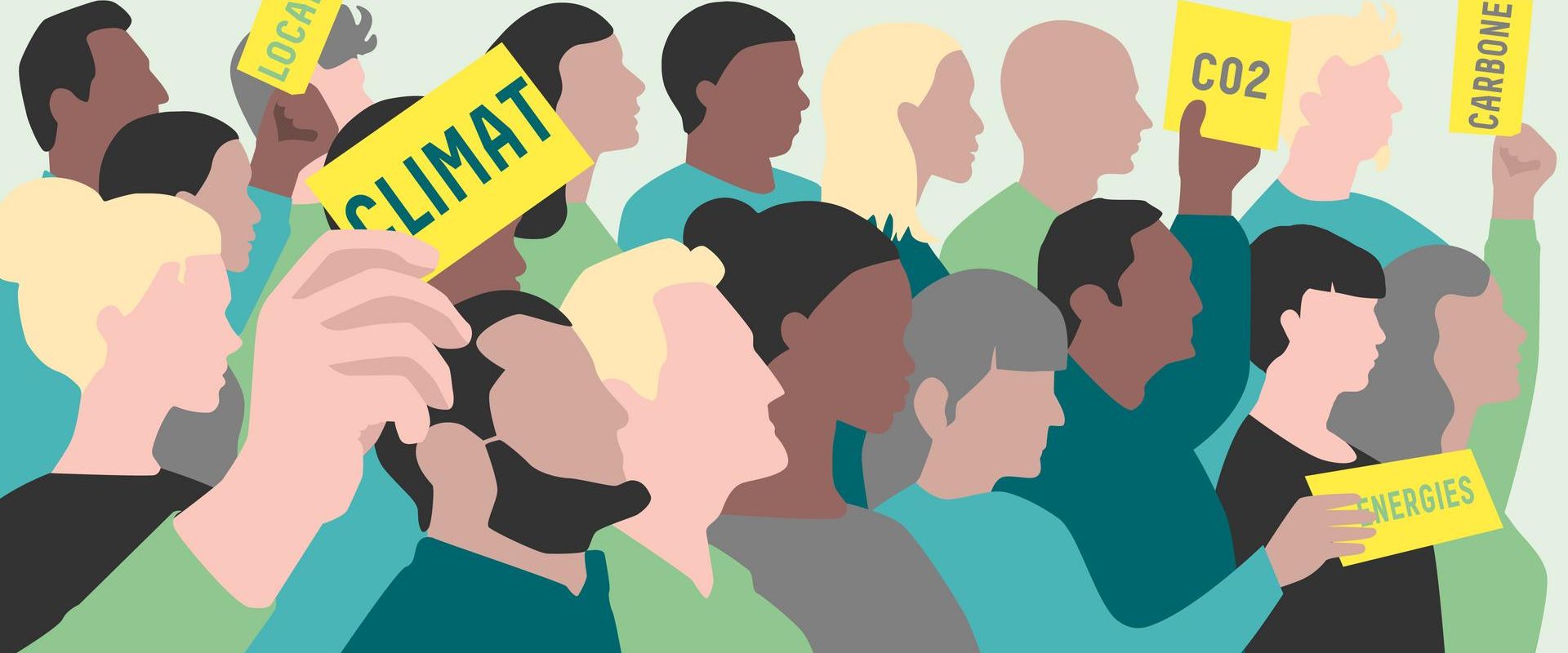
Climate change is not a possibility; it is a reality. What is even more concerning is the sluggishness with which measures to mitigate its effects are being adopted. This is the cry for help echoed in the Manifesto for Climate Democracy.
This call summons all of us, especially governments and political powers, to implement the recommendations of the Climate Assembly and safeguard them through a state pact. It urges us to take ownership of the fight for a sustainable planet and overcome the barriers that have so far hindered decisive action against climate change. Their proposal, though challenging, presents a renewed approach to tackling this crisis: expanding democracy to confront the climate emergency.
Marea Deliberativa is the initiative behind this call and promotes citizen participation to strengthen democracy through Citizens’ Assemblies. Its objective is to address current challenges, such as the climate emergency, inequality, and other social issues, through a collaborative and dialogue-based approach.
In a context where politics has become a spectacle devoid of effective solutions, Marea Deliberativa aspires to a more transparent and participatory political system. It seeks to involve individuals willing to listen, learn, and work together to address problems and find common solutions.
We emphasize here that Citizens’ Assemblies bring together randomly selected people and provide them with the necessary tools, information, and time to have an authoritative voice in important decisions that affect our lives, such as the economy, education, and the environment.
This initiative is not just a theoretical idea; it is a practice being implemented worldwide to address a variety of issues, from climate change to budgeting and housing policies. Countries such as Denmark, Belgium, France, and Germany have already adopted these assemblies, with the support of international organizations such as the OECD and the United Nations.
Thus, Marea Deliberativa invites individuals to join this wave of citizen participation, where they will find a space to contribute, learn, and work together in the search for solutions to the challenges we face as a society.
At its core, this particular Manifesto emphasizes a strategy that has proven fruitful in countries like France and the United Kingdom: the creation of Citizens’ Assemblies that, free from partisan pressures and lobbying, can address the necessary decisions to drive the ecological transition. And it is not only about implementing emergency measures but also about building a resilient democracy that can withstand and adapt to the challenges of climate change.
What is proposed is an Ecological State Pact, grounded in principles of environmental justice and green fiscal reform, ensuring the continuity of actions against climate change beyond political fluctuations. It is crucial that the fight against the climate crisis not be a banner of a political party or government but a common cause embraced by society as a whole.
In this regard, one of the main strengths of the Manifesto is acknowledging that the ecological transition is not merely a matter of technology or regulation but also of citizen participation and social justice. Only through citizen participation and social justice can we guarantee a fair and sustainable energy transition.
However, constructive criticism cannot be overlooked. Despite the many advantages of Citizens’ Assemblies, their implementation is not without challenges. It will be essential to ensure that these assemblies are representative of the diversity of society and provide them with the necessary resources and support to make well-founded and feasible decisions.
Moreover, it is crucial that the decisions and recommendations of these Assemblies are respected and implemented by governments and relevant authorities. As highlighted in the Manifesto, the recommendations of the Citizens’ Assembly for Climate in Spain have largely been ignored, a pattern that cannot be repeated if we are to address the climate emergency.
In conclusion, this Manifesto is not just a call to urgent action against climate change but also a manifesto for climate democracy, a proposal to redefine how we make decisions about our planet and our future.
The Manifesto reminds us that climate change is more than an environmental problem; it is a challenge that requires collective commitment and a profound change in how we govern and live.
The recommendations of Citizens’ Assemblies are only a first step in defining a path towards a just and sustainable ecological transition. But these proposals must be backed by bold public policies and the willingness of all stakeholders, including citizens, governments, businesses, and civil society organizations. It is ultimately a call to action that we cannot ignore.
Because, as the Manifesto rightly points out, any delay results in deaths. And the solution is still within our grasp. We must confront the climate emergency with courage and determination, with the conviction that a just and sustainable energy transition is possible and within our reach.
It is not just the future of our planet that is at stake but also our present, our health, our economy, and our democracy.





